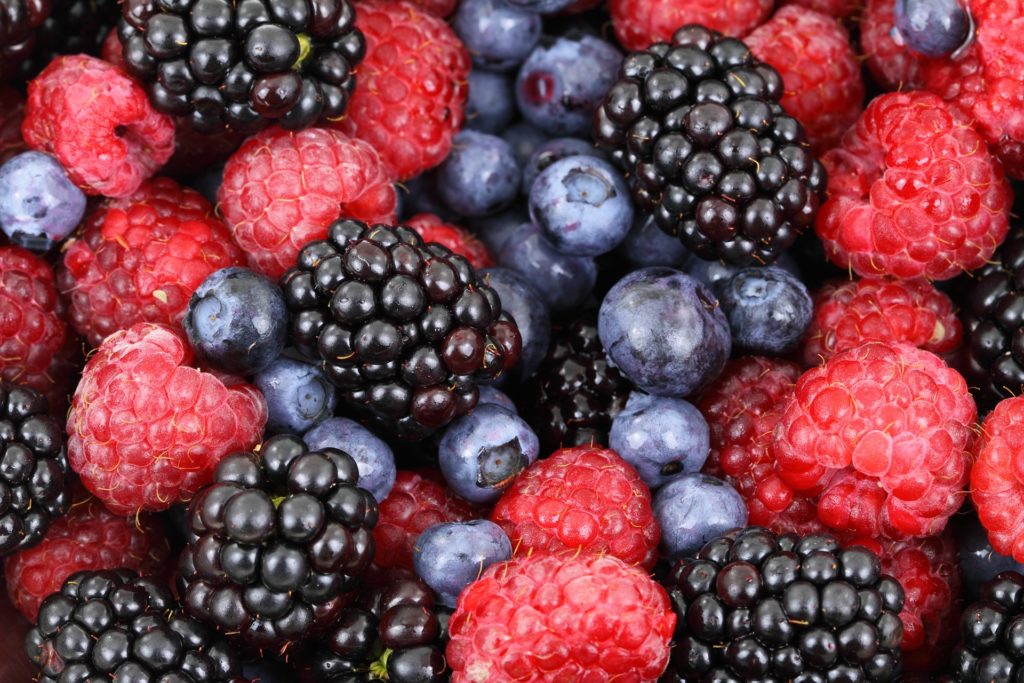Greetings, I hope you’re enjoying the beautiful summer weather.
Speaking of summer weather, it’s also berry season. Berries are a delicious nutrient-dense treat. You can add them to smoothies, salads, or they can stand alone, they are just that good!
Let’s talk about some benefits of berries.
They have amazing antioxidant properties
Berries contain plant chemicals called flavonoids, which have antioxidant effects. Antioxidants help the body eliminate toxic substances known as free radicals.
Free radicals can damage cells and are thought to be closely involved in the aging process plus other health conditions, such as cancer and heart disease.
The body uses antioxidants to reduce the damage that free radicals can cause. It is possible that when people eat foods that contain antioxidants, they are supporting this process, but more research is required to confirm this.
Berries also contain high levels of vitamin C
Humans are unable to synthesize their own vitamin C, so it is essential to include it as part of a healthy diet.
Vitamin C is involved in protein synthesis and is necessary for the body to produce collagen and certain neurotransmitters. These processes are vital for many bodily functions, including wound healing.
Vitamin C also has antioxidant properties and is involved in immune system functioning.
The fiber found in berries is also a great benefit
Fiber is a type of carbohydrate that the body cannot break down into smaller, sugar molecules, as it does with other carbs. Fiber plays a crucial role in regulating blood sugar levels and sugar consumption.
There are two types of fiber in food, soluble and insoluble.
Soluble fiber dissolves in water, and it is associated with lowering blood sugar levels and helping a person maintain a healthy level of cholesterol.
Insoluble fiber does not dissolve in water but supports healthy digestion.
A great source of vitamin K
Berries are an excellent source of vitamin K. This is a necessary nutrient for blood clotting, which is essential for proper wound healing.
People have also linked good bone health to vitamin K. However, a person should discuss their vitamin K intake with their doctor if they are on any blood thinners.
It’s essential to get plenty of vitamin A
Berries also contain vitamin A, which serves several functions in the body. Vitamin A supports the immune system, which combats infections and illness. It also supports the growth and maintenance of teeth and bones, as well as keeping skin healthy.
Vitamin A is responsible for producing the pigments in the retina of the eye and helps to support sight, particularly in dim lighting.
The seasons of berries
You can find berries sold throughout most of the year. However, if you are looking for super delicious, locally grown berries, you can expect them during the summer months.
Strawberries have a pretty short growing season in the pacific northwest, and they are usually ripe from June through mid-July.
Raspberries might be the berry highest in antioxidants, and they are ready between early July to mid-August.
Boysenberries are a hybrid berry. They were first introduced in the early 1900s when a man named Charles Rudolph Boysen successfully bred a cross between a blackberry and a raspberry. They grow between early July to mid-August.
Blackberries have a similar grow time to raspberries and boysenberries, but since they grow like weeds on the side of the road, you can often find them still ripe in August.
Blueberries, known as a superfood, typically ripen mid-July and continue to mature until later August to early September.
Tip
It’s always best to buy local, organic berries. You will not be disappointed when you spend the extra money and support your local farm.

